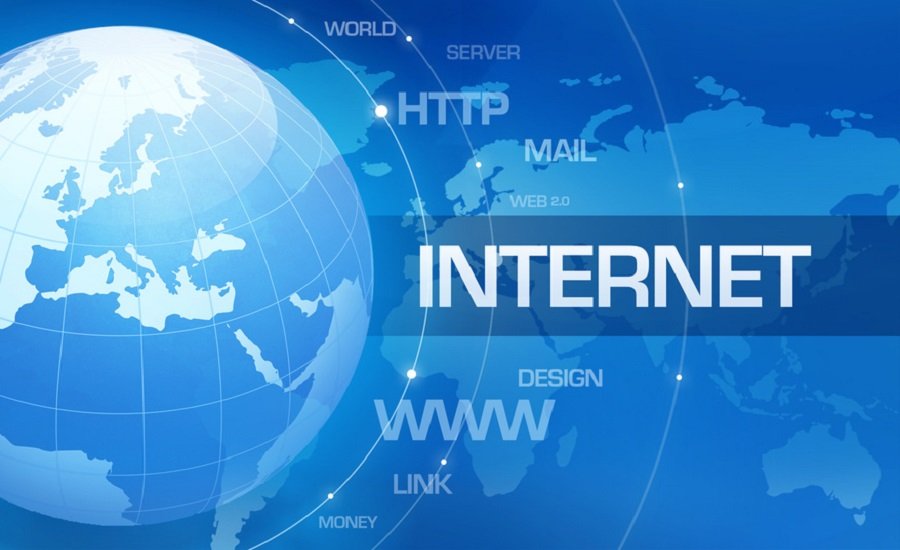The WHO has been urged to take action and denounce the internet shutdowns taking place in various countries during the COVID-19 pandemic.
GENEVA (AA) — The World Health Organization (WHO) has been urged to “publicly denounce” the internet shutdowns in South Asia because they are a “hindrance” to its mission and urge governments to allow internet use to aid the fight against the COVID-19 pandemic.
In a joint letter to WHO by over two dozen rights groups, it said internet shutdowns have seen a rise in the number in the recent past. “They are lasting longer, affecting more people, and increasingly being targeted at vulnerable groups such as refugees,” the letter read drawing attention to the pandemic which has affected over 5.5 million people across the globe.
Hampering the fight against COVID-19
“As the COVID-19 pandemic continues to spread, these restrictions are severely impacting people’s fundamental rights to freedom of expression, privacy, access to information, and health,” the letter said.
Appealing the WHO to urge Bangladesh, India, Myanmar, and Pakistan to end the internet disruptions, the rights groups said in a letter: “The COVID-19 pandemic amplifies the need for access to universal, resilient, open, secure, and affordable access to information and communications technologies for all”.
391 Shutdowns and counting…
We have made an informative brochure highlighting the menace of Internet Shutdowns in India. The brochure will be soon available on our website https://t.co/4NDhPYevQE #LetTheNetWork #KeepItOn #internetshutdown pic.twitter.com/JgLJbSBMNE— InternetShutdowns.in (@NetShutdowns) May 27, 2020
The letter said the Indian government had lifted a seven-month blanket internet shutdown in the disputed Jammu and Kashmir, but the internet speed has been restricted to only a slow-speed. The Jammu and Kashmir administration revoked the ban on social media although mobile Internet speeds would be restricted to 2G till further orders.
“We received several reports indicating that residents in Jammu and Kashmir are unable to access information about COVID-19 due to the restriction… doctors and other health workers… are struggling to download intensive care management guidelines published on various digital platforms in the country,” the letter added.
Internet Shutdown in South Asia: New normal?
Similarly, it said Myanmar ordered all mobile phone operators to shut down internet access in nine townships in Rakhine and Chin states. Norwegian mobile operator Telenor Group said in a statement the transport and communications ministry had once again ordered a three-month stop on mobile internet traffic in five townships in Rakhine and Chin states.
Officials cited “security requirements and public interest” for the reinstatement, Telenor said, adding that four other Rakhine townships – Ponnagyun, Mrauk-U, Kyauktaw and Minbya – remained under the blackout that was first imposed in June last year.
Rakhine State is where the majority of the country’s Rohingya Muslims reside. The Rohingya have been named “the most persecuted minority in the world” by the United Nations, following a wave of atrocities unseen since genocides in Rwanda and former Yugoslavia. To this day, the Rohingya are considered non-citizens and illegal iimmigrants. Not being recognized under the law, they lack basic rights such as access to social services or education, and their movement outside of Rakhine State is closely restricted. Myanmar has also imposed strict regulations that restrict the Rohingya from marrying and having children.
Pakistan has also denied internet in tribal districts while Bangladesh has cut off internet access in the Rohingya refugee camps, it noted.
The rights groups urged the WHO to “publicly denounce the use of internet shutdowns as a hindrance to the WHO mission and an acute threat to public health, and encourage governments to recognize the important role of the internet in times of crises”.
Meanwhile, the International Federation of Journalists (IFJ) said India and Pakistan were top two countries in South Asia asking Facebook to reveal information related to user accounts.
“IFJ is concerned at the intent behind the Indian and Pakistan governments in requesting such information. This interference is a threat to freedom of expression,” it added.
Facebook: a controversial social media giant
This, however, is not the social media giant’s first brush with controversy. The FTC in 2018 reopened its investigation into a 2011 privacy settlement with Facebook after revelations that personal data on tens of millions of users was hijacked by the political consultancy Cambridge Analytica, which was working on the Donald Trump campaign in 2016.
The leading social network with more than two billion users worldwide has also been facing inquiries on privacy from authorities in US states and regulators around the world.


